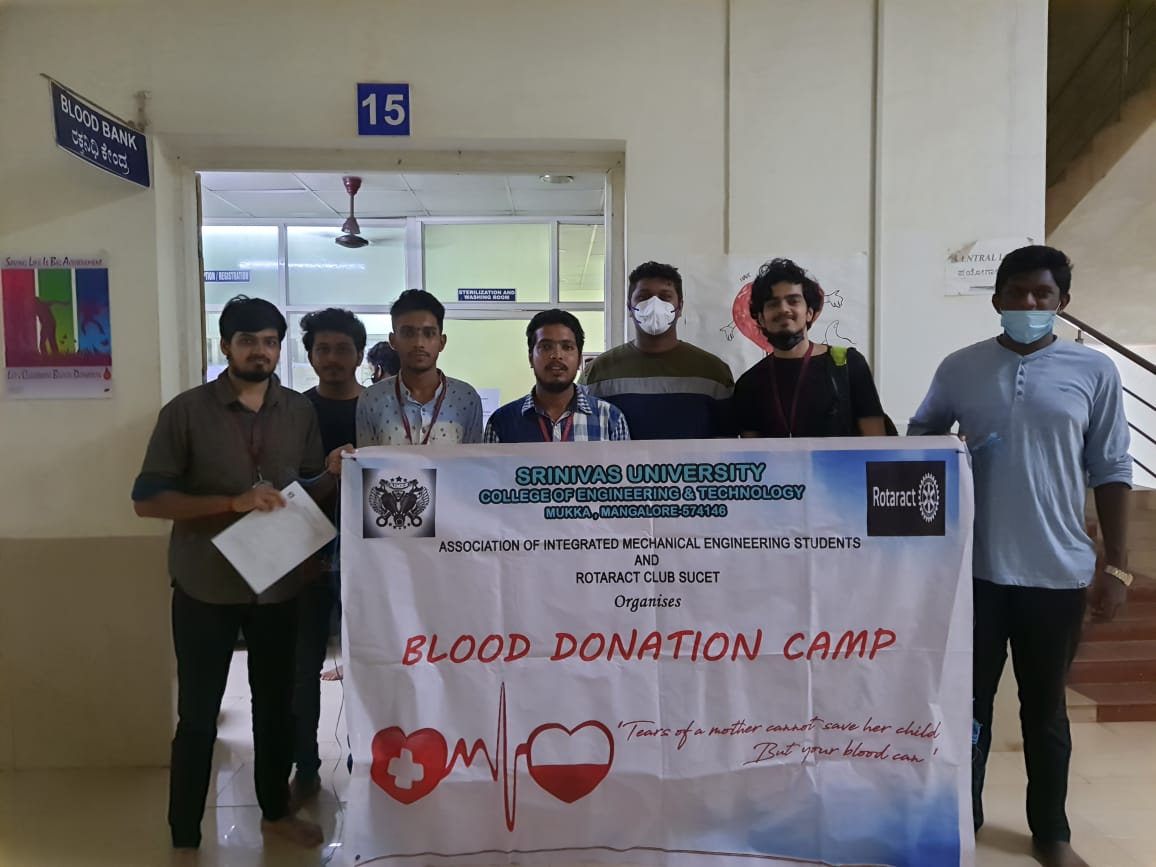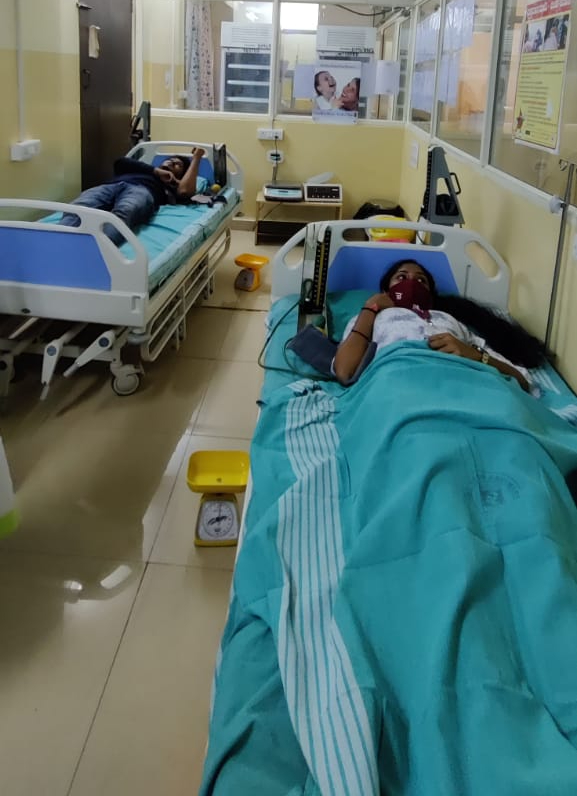Bachelor of Technology in Computer Science and Engineering
Bachelor of Technology in Computer Science and Engineering
Administrative Office No.: 0824-2425966
Duration: 4 years, Eight semesters (Admissions open for the batch 2023-24).
Eligibility: Passed in PUC/Higher secondary examination (10+2 pattern) or appearing in the current academic year with Physics, Chemistry and Mathematics as major subjects from any state board within India, CBSE, ICSE, with minimum 45% aggregate for General and 40% aggregate for SC/ST in PCM. Admission needs valid score in SUAT.
ABOUT B TECH (CSE):
The B.Tech degree in Computer Science and Engineering at Srinivas University is aimed at nurturing and developing professionals of the high quality to cater to the needs of industry and academia. The credit based curriculum is focused on industry-linking, technology-orientation and research which mirrors the principles of Srinivas University of pursuit of knowledge.Apart from offering common core subjects, extends to its graduates the flexibility to select from a wide range of elective subjects, which enables them to gain domain knowledge and practice-oriented learning in the key aspects of Computer Science and Engineering—as well as latest academic insights into the salient advancements and emerging technologies. Electives thus offered aim at equipping graduates with the skills and expertise required to design and develop computer software that is applied to diverse system based environments; computing solutions for optimizing and enhancing the performance of systems; and computers to solve challenges in areas such as robotics, computer vision, Security, image processing , pattern recognition techniques, machine learning and emerging technologies.
SPECIAL FEATURES OF THE PROGRAM:
- Spacious multimedia classrooms and well equipped laboratories with sufficient number of computer systems with latest updated software.
- Dynamic, qualified, dedicated and research oriented teaching faculty who work towards the overall betterment of the students.
- Excellent Technical faculty to provide technical assistance to the students during practical sessions.
- E-Study material will be provided from the college for every subject according to the syllabus.
- Industry oriented syllabus with special focus on experimental learning.
- Mini projects that help students implement the theoretical knowledge gained into practical applications which gives a better understanding of the subject.
- Innovations in examination system with opportunity for personal seeing of evaluated papers.
- Make-up exams in every semester to avoid year loss.
- Placement support and research oriented projects for every student.
- Focus on smart skill development & training on competitive exams.
- Opportunity for internships and industrial visits.
- Tie up with industries to get students trained in latest technology through industry sessions/ workshops.
- Number of seminars, technical talks by experts from industries, academicians is organised by the Department of CSE.
- Hands on Sessions/workshops by industry experts, Technical paper presentations, Project exhibitions, coding, debate competitions are held by the Department CSE.
CAREER OPPORTUNITIES:
- Software applications developer
- Computer systems analyst.
- Computer systems engineer.
- Network systems administrator.
- Database administrator.
- Business intelligence analyst.
- Web developer.
- Computer programmer.
- Software Test Engineer
- Further Opportunity to pursue M.Tech.
- Opportunity to appear for GATE/Engineering Services and other competitive Exams.
- Artificial Intelligence& Machine Learning
- Computer Architecture
- IOT
The Department of Computer Science and Engineering offers undergraduate course B.TECH. in Computer Science & Engineering and Post Graduate programme M.Tech in Computer Science. The department has five computer laboratories with all requisite computer system and software packages.
The department has ACE (Association of Computer Engineers) for the students, through which the department supports students to conduct workshops, seminars, Quiz, etc., The department has well qualified and experienced teaching staff and sufficient number of technical support staff.
Scope of Computer Science & Engineering:
-
Computer Design and Engineering
Design new computer circuits, microchips, and other electronic components. Design new computer instructions set and combine electronic or optical components to provide powerful but cost-effective computing. -
Information Technology
Develop and manage information systems that support a business or organization. -
Software Engineering
Develop methods for the production of software systems on time, within budget, and with few or no defects. -
Computer Theory
Investigate the fundamental theories of how computers solve problems, and apply the results to other areas of computer science. -
Operating Systems and Networks
Develop the basic software computers use to supervise themselves or to communicate with other computers. -
Software Applications
Apply computing and technology to solving problems outside the computer field – in education or medicine, for example.
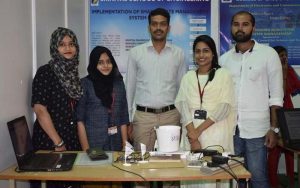
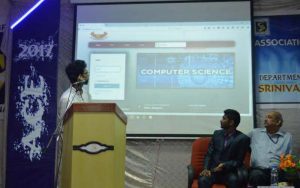
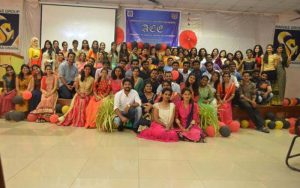
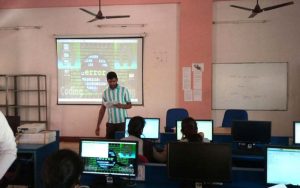
Course Structure:
| SEMESTER 1 | SEMESTER 2 | ||||
| S. No. | Subject | Credits/ Marks | S. No | Subject | Credits/ Marks |
| 1 | Engineering Physics of Materials (S) | 4/100 | 1 | Engineering Chemistry of Materials (S) | 4/100 |
| 2 | Computer Software Concept & Programming (T) | 4/100 | 2 | Information Communication & Computation Technology (T) | 4/100 |
| 3 | Elements of Electrical & Electronics (E) | 4/100 | 3 | Elements of Mechanical & Civil Engineering (E) | 4/100 |
| 4 | Quantitative Techniques in Engineering I/II (M) | 4/100 | 4 | Quantitative Techniques in Engineering I/II (M) | 4/100 |
| 5 | Lab on Engineering Physics of Materials (EL) | 2/100 | 5 | Lab on Engineering Chemistry of Materials (EL) | 2/100 |
| 6 | Electrical & Electronics Lab | 2/100 | 6 | Computer Aided Engineering Drawing Lab (EL) | 2/100 |
| 7 | Lab on Computer Programming | 2/100 | 7 | Lab on Spread sheet Programming | 2/100 |
| 8 | Principles of Environmental Studies (ESEP) | 2/50 M | 8 | Constitution & Professional Ethics (ESEP) | 2/50 M |
| 9 | Technical English (ESEP-Xlanz) | 2/50 M | 9 | Professional English (ESEP-Xlanz) | 2/50 M |
| 10 | Kannada/ Co-curricular Activities (ESEP) | – | 10 | Kannada/ Co-curricular Activities (ESEP) | – |
| Total | 26/800 | Total | 26/800 | ||
| SEMESTER 3 | SEMESTER 4 | ||||
| S. No. | Subject | Credits/ Marks | S. No | Subject | Credits/ Marks |
| 1 | Numerical Techniques and Integral Transforms | 4/100 | 1 | Discrete Mathematical Structures And Graph Theory | 4/100 |
| 2 | Data Structures and its Applications | 4/100 | 2 | Design and Analysis of Algorithms | 4/100 |
| 3 | Digital System Design | 4/100 | 3 | Object Oriented Concepts | 4/100 |
| 4 | Microprocessor and Embedded Systems | 4/100 | 4 | Software Engineering | 4/100 |
| 5 | Logic Design and Analog Circuits Laboratory | 2/100 | 5 | Design and Analysis of Algorithm laboratory | 2/100 |
| 6 | Microprocessor Laboratory | 2/100 | 6 | Computer Graphics and Visualization Laboratory | 2/100 |
| 7 | Data Structures Laboratory | 2/100 | 7 | Java Programming Laboratory | 2/100 |
| 8 | ESEP - Troubleshooting | 2/50 M | 8 | ESEP- Hands-on training on Unix and Shell Programming | 2/50 M |
| 9 | ESEP-Xlanz | 2/50 M | 9 | ESEP-Xlanz/td> | 2/50 M |
| 10 | Co-Curricular Activities/Sports | - | 10 | Co-Curricular Activities/Sports | - |
| Total | 26/800 | Total | 26/800 | ||
| SEMESTER 5 | SEMESTER 6 | ||||
| S. No. | Subject | Credits/ Marks | S. No | Subject | Credits/ Marks |
| 1 | Data Base Management Systems | 4/100 | 1 | System Software and Compiler Design | 4/100 |
| 2 | Computer Networks | 4/100 | 2 | Machine Learning | 4/100 |
| 3 | Core-Elective -1 | 4/100 | 3 | Core-Elective -2 | 4/100 |
| 4 | Optional/Soft Elective | 4/100 | 4 | Open Elective-1 | 4/100 |
| 5 | Data Base Management Systems Laboratory | 2/100 | 5 | System Software and Compiler Design Laboratory | 2/100 |
| 6 | Computer Networks Laboratory | 2/100 | 6 | Machine Learning Laboratory | 2/100 |
| 7 | Programming the Web Laboratory | 2/100 | 7 | Python Programming Laboratory | 2/100 |
| 8 | ESEP – IPR in CS | 2/50 M | 8 | ESEP – Patent Analysis | 2/50 M |
| 9 | ESEP-Xlanz | 2/50 M | 9 | ESEP-Xlanz | 2/50 M |
| 10 | Co-Curricular Activities/Sports | - | 10 | Co-Curricular Activities/Sports | - |
| Total | 26/800 | Total | 26/800 | ||
| SEMESTER 7 | SEMESTER 8 | ||||
| S. No. | Subject | Credits/ Marks | S. No | Subject | Credits/ Marks |
| 1 | Internet of Things | 4/100 | 1 | Technical Seminar | 2/100 |
| 2 | Core Elective –3 | 4/100 | 2 | Internship | 3/100 |
| 3 | Core Elective – 4: | 4/100 | 3 | Project with applied patent | 13/200 |
| 4 | Open Elective – 2: | 4/100 | 4 | ESEP-ABC SKILL TRAINER(OPTIONAL) | - |
| 5 | Internet of Things Laboratory | 2/100 | Total | 18/400 | |
| 6 | Cloud Computing Laboratory | 2/100 | |||
| 7 | Lab/Project on Optional | 2/100 | |||
| 8 | ESEP – Mini Project | 2/50 M | |||
| 9 | ESEP-Xlanz | 2/50 M | |||
| 10 | Co-Curricular Activities/Sports | - | |||
| Total | 26/800 | ||||
Electives:
| SEMESTER 5 | SEMESTER 6 | ||||||
| Core Elective –1 | Optional /Soft Elective | Core Elective –2 | Open Elective -1 | ||||
| S.No. | Subject | S.No. | Subject | S.No. | Subject | S.No. | Subject |
| 1 | Programming the World Wide Web | 1 | Operating Systems | 1 | Python Application Programming | 1 | Web2.0 |
| 2 | Object-Oriented Modeling and Design | 2 | Natural Language Processing | 2 | Data Warehousing and Data Mining | 2 | Designing Embedded Systems |
| 3 | Theory of Computation | 3 | Management and Entrepreneurship | 3 | Adhoc Networks | 3 | Python Application Programming |
| 4 | Digital Image Processing | 4 | Mobile Application Development | 4 | Wireless Sensor Networks and Mobile Computing | 4 | Cryptography and Network Security |
| 5 | Data Compression | 5 | Stress Management | 5 | Cryptography, Network Security and Cyber Law | 5 | Occupation Health and safety in construction industry |
| 6 | Air Pollution Control | ||||||
| 7 | Total Quality Management | ||||||
| 8 | Micro Electromechanical Systems | ||||||
| SEMESTER 7 | SEMESTER 7 | ||
| Core Elective –3 | Core Elective –4 | ||
| S.No. | Subject | S.No. | Subject |
| 1 | Cloud computing | 1 | Artificial Intelligence |
| 2 | Genetic Algorithms | 2 | Block chain |
| 3 | High Speed Networks | 3 | Virtual Reality |
| 4 | Advanced Computer Architecture | 4 | Storage Area Networks |
| 5 | Multimedia Processing | 5 | Software Architecture |
| 6 | Agile Technology | 6 | Distributed Computing systems |
| 7 | System Modeling and Simulation | 7 | Advanced Database Management systems |
| 8 | Digital Signal Processing | 8 | Data Science |
| 9 | Deep Learning | 9 | Advanced Microprocessor |
| 10 | Big Data and Analytics | 10 | Cyber Security |
| SEMESTER 7 | |||
| Open Elective-2 | |||
| S.No | Subject | ||
| 1 | Social and Web Analytics | ||
| 2 | Information Security | ||
| 3 | Software testing | ||
| 4 | Artificial Intelligence | ||
| 5 | Virtual Reality | ||
| 6 | Telecommunication Management | ||
| 7 | Research Methodology | ||
| 8 | Environment impact Assessment | ||
| 9 | Introduction to smart city | ||
| 10 | Nano Technology | ||
| 11 | Operation Management | ||
| 12 | Quality Control | ||
Note :
(1) University Registration Fee, Semester Registration Fee, Eligibility Fee for other State/NRI students,
Examination Fee, Uniform Fee, Hostel Fee, Industry visit fee, Internship fee, Transportation fee, Sports & games
fee, Extra-curricular activity fee, etc., are extra. The course fees mentioned for subsequent years may vary annually
up to 6%.
(2) The University Placement & Training Team will assist the admitted students to get (a) Earn While Learn, (b)
Industry Internship, and (c) Final Job Placement.
(3) Karnataka Quota* : 1. Applicable only to Karnataka students having 50% or more in the applicable subject
combination. 2. To be considered as Karnataka domicile student should have studied last 7 years including
PUC/Degree in the Karnataka
(4) SC/ST/OBC Candidates should submit the Caste Certificate and Income Certificate to become Eligible
The Rotaract Club of SUCET in association with the Blood Bank of Srinivas Hospital, Mukka organised a Blood Donation Camp on October 29th 2021. We were made aware of the urgent requirement at the hospital and 37 Units of blood were donated. Although more than 70 students turned up, several of them were turned back due to numerous deficiencies. Dr. Rachana thanked the students for heeding their call and certificates were distributed to all the donors.
